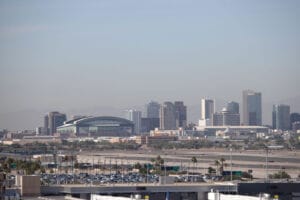Over the past few months, an addition to the three P’s of sustainability has appeared: peril. Where in the past the reasons for going green were improvements in people, planet and profits, it is now evident that sustainability is as much about the survival of the planet as it is about the survival of business.
You might not be in a business associated with as much risk as the oil industry, but that doesn’t mean you are off the hook: Risks are everywhere.
Such industries as electronics, bottled water and even the yellow pages have come under extreme pressure from government and environmental groups for their end-of-life product stewardship, impact on local people where the raw materials are sourced, the process and people used to recycle these items, their manufacturing and supply chain emissions, and even the sheer existence of their products in the marketplace.
So how do you mitigate risks before they become perilous issues that jeopardize the future of your company?
First, take a long-term view of your business. Today so much attention is focused on quarterly earnings that it is difficult to see where a business is going and what pitfalls may be ahead. Take a hard look at your products: Are they the same product that you expect to be selling in 10 years? What about them could cause risk to you in the future? What about those products might cause harm to the planet, people (your employees and customers) or might otherwise put you in harm’s way? And finally, how are you pitching your product to the market?
Green claims are one area where many businesses fall into trouble. Abraham Lincoln famously said, “You can fool all of the people some of the time; you can fool some of the people all of the time, but you can’t fool all the people all the time.”
Every day it seems more and more companies are making green claims, some of which are criminal, but most fall in along the lines of ignorance.
Making a green claim is really tough. To really create something that is green you need to consider who, what, where, when, why and how it was manufactured, sourced, shipped, recycled, sold, reclaimed and what it is made of. Just because a product does something good doesn’t make it green.
Consumers are getting smarter and less tolerant of companies that are making misleading claims. If you want to find out how prevalent risks are in the market, look for chatter about you and your competitionon sites like Twitter, Facebook, Yelp and Foursquare. See for yourself what people are saying.
Many small businesses are surprised at what is being said about them on mediums that they never thought of using.
Most importantly, take a look at your business and the people that comprise it; ask them where the risks are. Your people likely know the things that are being overlooked or done improperly. Not only are there risks in not correcting these problems, but an even greater risk comes when an employee leaves your employment and decides to share damaging details with the public.
Are you part of a company where ignorance is bliss or where knowledge is power?




